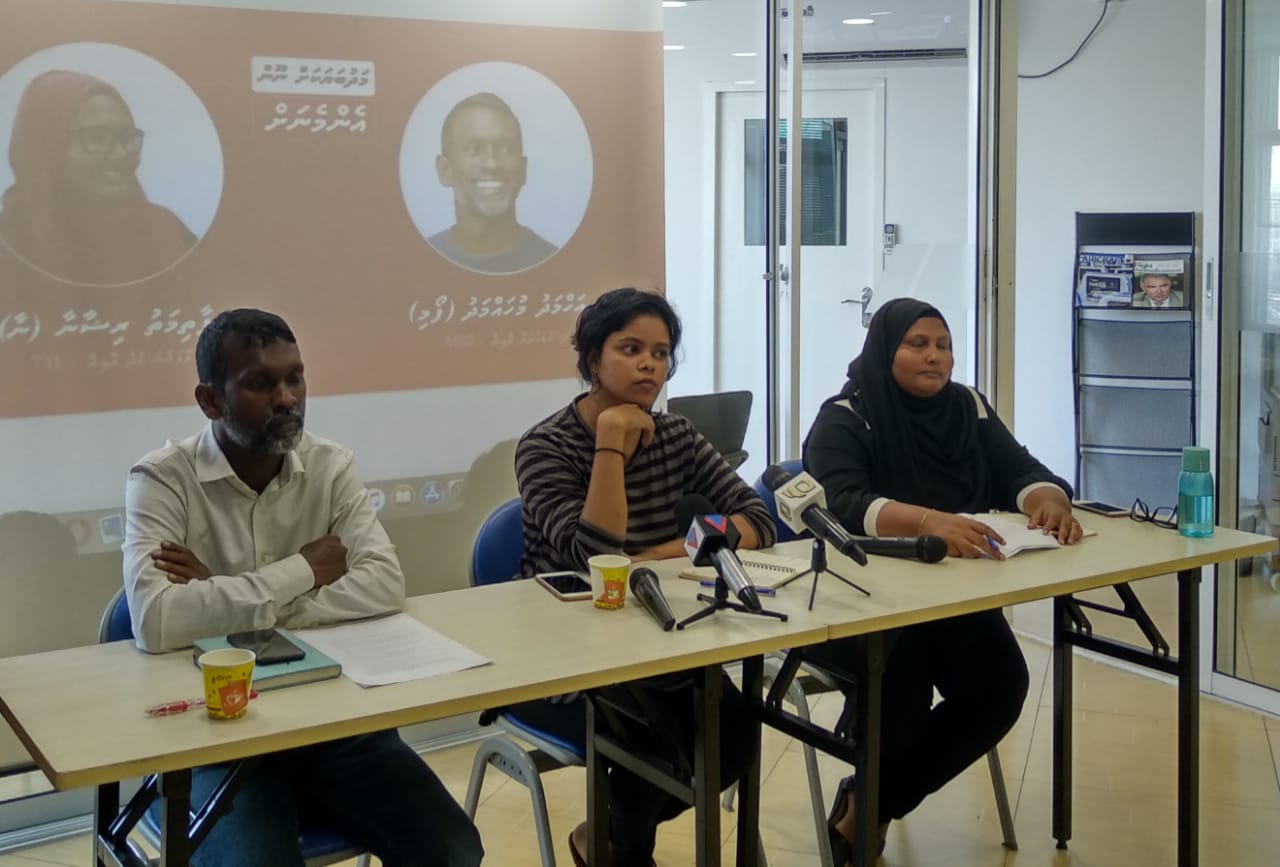Leftwing group aims to challenge political establishment
Navaanavi decried the influence of big businesses and hidden campaign donors.

21 Feb 2019, 09:00
Parliamentary candidates from a nascent leftwing group are seeking to challenge the parties that dominate Maldivian politics and form the “establishment,” drawing attention to the influence of big businesses and hidden campaign donors.
Navaanavai met the press Tuesday to introduce its two candidates, Fathimath Rishana for the Central Maafannu constituency in the capital and Ahmed Mohamed ‘Forme’ for the Dhaalu Kudahuvadhoo constituency.
Both were endorsed after a thorough vetting process, spokeswoman Fathimath Saaira told reporters.
Become a member
Get full access to our archive and personalise your experience.
Already a member?
Discussion
No comments yet. Be the first to share your thoughts!
No comments yet. Be the first to join the conversation!
Join the Conversation
Sign in to share your thoughts under an alias and take part in the discussion. Independent journalism thrives on open, respectful debate — your voice matters.




